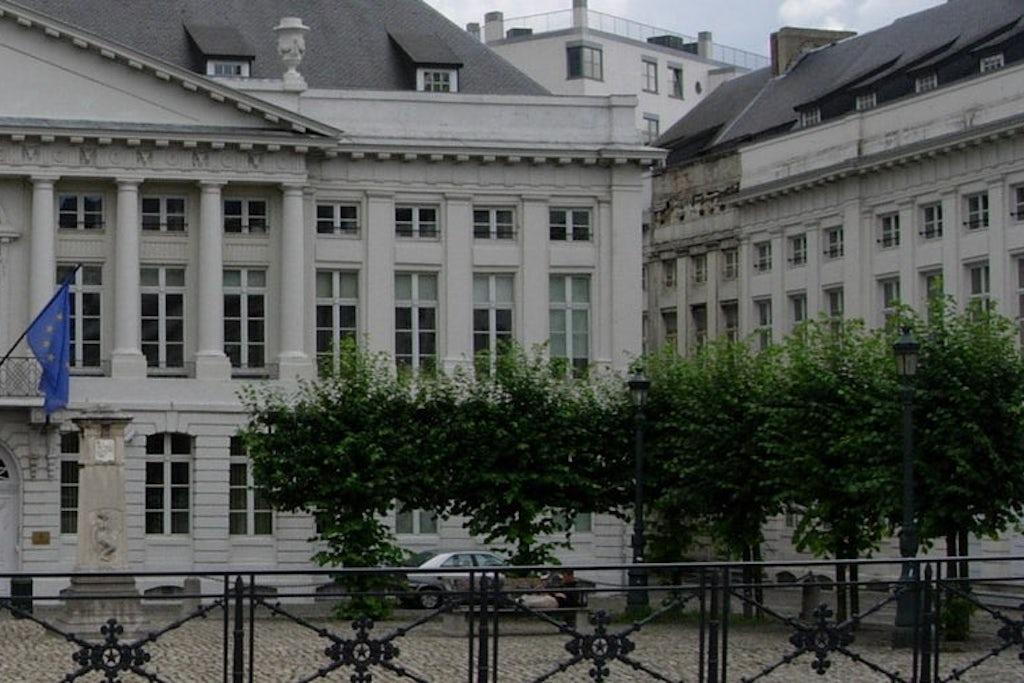
Does passion pay off? Policy response from the Flemish Minister for Culture, Media, Youth and Brussels Affairs, Sven Gatz

This contribution by Minister for Culture, Media, Youth and Brussels Affairs, Sven Gatz is a response to the presentation of the results of the study ‘Does passion pay off? A study into the socio-economic position of professional artists in Flanders,’ an initiative of Flanders Arts Institute, Kunstenloket, the Flanders Audiovisual Fund (VAF), Flemish Literature Fund (VFL), Social Fund for the Performing Arts (SFP), ACOD-Cultuur trade union, Overleg Kunstenorganisaties (oKo) (Industry Federation for the Arts) and the Department of Culture, Youth, Media and Sport.
“The artist’s profession is a unique career which, it appears from the study, is practised with great passion and satisfaction. At the same time artists have a special professional context, which requires the right support. Anyone who aspires to being an artist opts for a job in which he or she must be flexible. Financial insecurity goes, so to speak, hand in hand with the enjoyment of considerable personal freedom, engagement and the hope of recognition. I believe it is important to develop other supporting measures in addition to the subsidies that already exist, because: without artists there would be no art, and without art there would be no culture,”
Sven Gatz, minister van cultuur
Artists can apply for short-term and multi-year grants via the Arts Decree. An artist can use a grant to literally buy time and focus on his or her work and artistic development and deepening. Project subsidies and national and international residencies are also important in this regard.
The assessment of the structural operating subsidies within the Arts Decree took into account criteria such as ‘a focus on proper remuneration for artists‘ and ‘support for artists, with specific attention for artists starting out in their career‘ to draw the attention of art institutions and art organisations benefiting from an operating subsidy, to their responsibility to ensure the development of sustainable careers for artists.
The Minister stressed that it is important for major art institutions and art organisations to be responsible for supporting artists starting out in their career and providing a platform for young initiatives. In doing so they must also focus on supporting other aspects within the artistic practice such as business management, production management, networking and communication. Before the end of the year a management agreement will be concluded with all art institutions, which will include this mission.
The Minister also wants to increase efforts for additional funding. In 2018, he aims to launch the ‘Culture Bank’ (Cultuurbank) (working title). It will be responsible for providing credit services. These range from microcredit for small projects to venture capital for large projects for the culture sector as a whole. Individual artists as well as organisations will be able to take out a loan with the ‘Culture Bank’.
The ‘Culture Bank’ will, along with a substantive partner charged with disseminating art, be responsible for the financial monitoring of the art purchasing arrangement (kunstkoopregeling). Art lovers that want to purchase a certain work by a visual artist, can take out a low-interest loan via the art purchasing arrangement. The art purchasing arrangement provides visual artists with a financial boost.
The Artist’s grant (Kunstenaarstoelage) is another useful and necessary form of microcredit for artists. It concerns a temporary bridge loan that gives artists a helping hand for a project or investment. The artist’s grant is currently still incorporated in the Arts Decree, but will take on a new significance in the culture policy for supplementary funding and cultural entrepreneurship.
The Minister also strives to support visual artists with the reintroduction of the contemporary art purchasing arrangement. He will allocate at least €100,000 a year to this project.
In addition to financial support there will be greater efforts related to providing more targeted advice and guidance. The Cultuurloket (currently still Kunstenloket) will be assigned an important task to inform artists in the culture sector about the right statuses and remuneration methods and thus help them effectively build up social rights. The Cultuurloket should be operational in 2018.
The introduction of the performing arts tax shelter creates the possibility of offering investors a more attractive fiscal framework for financially supporting the performing arts or theatre work. “This additional private funding could provide the performing arts with new impetus, which will benefit employment and proper remuneration for employees and freelancers. Discussions on this matter are progressing favourably with the federal minister responsible. It is expected that the first dossiers could be submitted during the course of 2017,” the Minister reveals.
Minster Gatz, along with the French Community and the Federal Government, wants to examine how the bottlenecks related to regulations for the artist status (e.g. regarding social security, VAT, income tax) can be eliminated. “I am already pleased that the Artists’ Commission is back up and running at the initiative of my colleague, De Block. The Commission was not able to take any decisions due to incomplete legislation and a lack of budget. Artists can now acquire a suitable status once more,” says Minister Sven Gatz.





